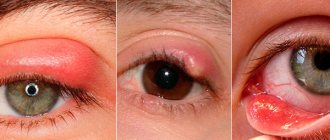Anxious child
In the first years of life, children are in a constant flow of unknown information. Every day, kids encounter incomprehensible words and encounter new phenomena and people. And not everyone goes through this stage easily; some children develop increased anxiety. Let's figure out how parents can help their child overcome fears and anxiety.
External manifestations of anxiety and restlessness in children
Increased anxiety has different manifestations: rapid heartbeat, shallow breathing, increased sweating, tension in the body, nausea. An anxious child may not let you go one step at a time, begin to stutter, cry, or become hysterical. He develops sleep problems, increased fatigue, and health problems.
But anxiety is not always something negative. Feelings of fear motivate us or help us avoid danger and conflict. But if increased anxiety interferes with normal life, then you should pay close attention to this problem.
Consequences of anxiety in children
Emotional instability, anxiety and lack of self-confidence negatively affect the intellectual development of children, inhibit their cognitive activity, and impair the ability to make independent decisions.
Photo by Annie Spratt on Unsplash
Prolonged stay in a state of increased anxiety can lead to decreased immunity, hormonal imbalance and the development of serious pathological processes in the body: hypertension, vegetative-vascular dystonia, neuroses, psychoses, diseases of the heart, kidneys, and gastrointestinal tract.
If left untreated, childhood anxiety can take hold over time and lead to the formation of an anxious-neurotic personality type, unable to adapt to society, prone to loneliness and depression. Preventing this from happening is the common task of parents, teachers, and specialized specialists.
Types of anxiety in children
Separation anxiety
The baby gets upset and worries a lot when mom or dad leave. The grown-up child refuses to go to kindergarten or stay with his grandmother. Separation anxiety begins to appear at 9 months and can worsen at 2-3 years.
Social anxiety in children
The child feels discomfort in the presence of a large number of people, is afraid of being judged, and cannot stand noisy places. Social anxiety often arises due to a lack of understanding of an object or event, as well as a lack of experience in the child.
Anxiety-phobic disorder
A hidden, irrational fear of certain things or situations. For example, fear of thunderstorms, insects, closed spaces.
Causes of anxiety in children
The development of anxiety in children can be triggered by various factors:
- real events that left a heavy mark on the child’s soul (divorce of parents, death of loved ones, loss of a beloved pet);
- anxiety of parents caused by their loss of work or a difficult situation in the workplace;
- financial and property problems, domestic troubles;
- a conflict atmosphere in the family, accompanied by “pulling” children to the side of one parent or another;
- different, sometimes contradictory approaches to education on the part of parents and grandparents;
- inflated demands on the child, constant comparison with more successful children;
- excessive guardianship, depriving children of independence and creating a fear of staying or solving problems themselves;
- humiliation of children, emphasizing their lack of rights and dependence on adults;
- change of environment (moving to a new place of residence, transferring to another kindergarten or school);
- the influence of television programs that generate a feeling of fear, danger, and the possibility of repeating on-screen events in life.
The risk of developing increased anxiety especially increases if some of these reasons overlap each other, greatly increasing the effect of the impact.
Causes of anxiety in children
The development of increased anxiety in children is influenced by two factors: genetics and upbringing.
Parenting can either reinforce an innate predisposition to anxiety or compensate for it.
At the same time, there are children with increased sensitivity and emotionality, which is an environment for the development of anxiety.
If the mother herself is too excited and overly protective of the baby, then he will be subject to great worries. Such a mother subconsciously cannot give the child the tools to cope with this world, to accept it in imperfection, with a certain danger. Because she herself cannot cope with her anxiety.
Therefore, the mother must first find ways to balance herself, and then the child will begin to copy them.
You can't just teach a child to calm down if you don't have it in you.
Symptoms of Anxiety in Children
Signs of increased anxiety in children at each age manifest themselves differently.
Up to a year
Anxiety in infants under one year of age is associated mainly with health conditions (birth injuries, inflammatory diseases, diseases of the nervous system). It manifests itself as anxiety, crying, decreased appetite, and poor sleep. If the root cause is eliminated, the child’s condition will stabilize.
Photo by Irina Murza on Unsplash
Junior preschool age
Anxiety in early preschool age is determined by the first experience of integration into society. If a child does not have good relationships with other children, he becomes capricious, tearful, does not fall asleep for a long time in the evening, is afraid of the dark, bites his nails, and twists his hair.
Senior preschool age
Children of senior preschool age are afraid of being forgotten by their parents in kindergarten, rejected by other children. Outwardly, manifestations of an anxious state in such children may not be very noticeable: they behave in an exemplary manner and do not make noise.
But educators and parents should be wary of the fact that the child is withdrawn, tries not to make eye contact when talking to him, and often cries while waiting for his mother. Such children have low self-esteem, they consider themselves ugly and stupid, and they often suffer from urinary and fecal incontinence.
Pupils
A serious stress for children is entering school, where everything is new and unusual. New responsibilities appear and demands increase: it is necessary to prepare lessons, go to the board, show your knowledge or ignorance in front of the whole class. Parents are becoming stricter, the daily routine is becoming stricter, there is no longer the same opportunity to walk freely, play and not worry about anything.
Photo by Scott Webb on Unsplash
If adaptation to new conditions is not very successful, after some time the student begins to show signs of growing anxiety: increased fatigue, poor concentration, lack of self-confidence, timidity, restless behavior, poor sleep. He begins to deceive, does not want to go to school or meet with classmates.
He may experience physiological manifestations: headaches, poor appetite, nausea, abdominal pain and gastric upsets, fever, sweating, tremors of the extremities. This often happens before tests, after any incidents at school, or before parent-teacher meetings.
Photo by Sammie Vasquez on Unsplash
High school students
In high school students, the feeling of anxiety is manifested by an overly emotional reaction to the attitude of others towards them, a painful desire for self-affirmation among peers, fear of difficulties, and an inability to concentrate when completing tasks. Age-related hormonal changes that occur in the body of adolescents contribute to increased symptoms.
How to help
In a difficult situation for your child, be close to him and create a supportive atmosphere:
- Accept the child's emotion, tell him in a moment of anxiety: “I know you don’t like this.” Support your child - show that you understand how difficult it is for him and believe that he will cope with a difficult situation. At the same time, let him know that you are there and support him.
- Focus your child's attention on the moment that he managed to overcome. For example, I went into a room with a lot of people and agreed to get an injection. Accepting your child's feelings does not mean that you will do everything possible to avoid a scary situation for him. Your actions should be aimed at reducing his anxiety level.
- Speak out the fear. Discuss with your child what might happen if what he is afraid of happens. For example, if your child is afraid to let you go in kindergarten, talk about it. If he is afraid of dogs, tell him how to behave if he is near an animal.
- Give your child a choice. For example, if he is afraid to sleep in the dark, ask: “What will help you sleep more peacefully: a favorite toy, a night light, or a slightly open door?” Or give your child the opportunity to come up with a solution himself.
- From 3-4 years old, you can teach your child to breathe when anxiety or nervousness appears. Breathing exercises help you calm down quickly. Children quickly pick up this instrument. The following will help reduce nervousness: washing with cold water, jumping, tensing and relaxing the muscles of the whole body.
- Use the formula: “Find out - inspire to face a difficult situation - with reason.” It is important to work with your child to find a way out of a difficult situation for him and, where appropriate, teach him to react to it differently. For example, from the age of 4-5, some children are afraid that thieves may break into the house. If a child tells you about this fear, explain to him that the house is protected, there are locks on the doors, there is a camera and a concierge at the entrance. It is important for a child to know that adults protect him and create a safe space for him. It is important for children to hear that mom and dad are in control.
- Show your child by personal example how you cope with negative emotions, fears and anxiety. Let your children see how you calmly experience such moments.
What not to do
Don't "inflate" emotions
If your child is afraid of dogs, accept this fact. But do not exaggerate the situation: there is no need, for example, to tell your grandmother to avoid all animals while walking with the baby. Also, don't tell everyone that your child has this fear. Every time you show your child that it is right to be afraid of dogs. And he is unlikely to ever want to approach them.
Avoid asking questions if you don’t understand what exactly your child is afraid of.
Ask:
"What's happened?"
"How do you feel?"
“What sounds did you hear?”
"What have you seen?"
There is no need to tell him what he might be afraid of: “Are you scared of the dog, were you scared by a loud sound?” This way we deepen the fear even deeper.
Avoid the long wait "horror"
If you know that some situation makes your child nervous, try to avoid waiting for it for a long time. If he does not like to take tests or visit a doctor, there is no need to prepare him for this event three days in advance.
Don't resort to lies
The child will easily understand that you are not telling the truth and will think that you do not know how to cope with fear.
Don't "reset" the situation by doing everything possible to prevent it
For example, if a child does not like strangers or loud noises, and you make efforts to ensure that this does not happen. This way, you deprive your child of the opportunity to develop mechanisms that will teach him to cope with high anxiety. You support the thought “yes, I can’t cope with this” and give the affirmation “yes, it’s very scary and difficult.”
In what situations does your child become anxious? What helps him calm down?
Did you like the article? Rate:
Votes: 16
Causes of anxiety in a child
The condition can be triggered by serious events in a child’s life: the death of loved ones, parental divorce, academic failures. The risk of anxiety is especially high if these events influence each other, aggravating each other. But often the problem of children's anxiety lies in the parents themselves or adults who constantly communicate with the child, in the methods of education, in the anxiety of the parents themselves, who express it in front of the baby.
Types of parents who can cause problems in their children:
- Parents are mother hens. They try to protect children from any problems and dangers. Due to overprotection, children cannot be independent, they feel defenseless in front of the world and cannot achieve success on their own.
- Parents-projectors, who themselves have not achieved much success in life, try to realize them in their child. Or another option - people with a high position in society demand that their offspring conform to their status. The desire to make a child fit ideals leads to anxiety; the child is afraid of disappointing his parents and not meeting their expectations.
- Spartan parents. They want to develop character and will by hook or by crook, by “tightening the screws” too much. They ignore or ridicule children's problems, which leads to the child feeling like a failure. Source: O.A. Andrienko. Fears and anxiety in children of primary school age // Humanitarian Balkan Studies, 2021, vol. 3, no. 2(4), pp. 63-65
There are also mixed types of parents, as well as grandparents and older siblings who influence the child. It is also worth highlighting three types of special requirements that can lead to internal conflicts in the child’s personality, which serves as a provocateur of increased anxiety:
- Requirements that contradict each other. When parents cannot agree among themselves, or when the wishes of the parents go against the school rules.
- Requirements that are too high or inadequate for the child’s age and abilities. For example, if a child, due to anatomy and physiology, is not capable of sports achievements, and the parents certainly want to make him a sports star.
- Negative (or negative) demands that humiliate the honor and dignity of the child, emphasizing his dependence on the decisions of adults. For example, male fathers demand that they stop being capricious, otherwise they won’t buy toys for their child or won’t take him with them.










